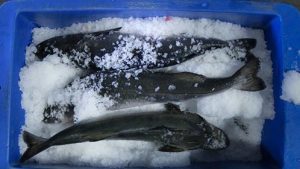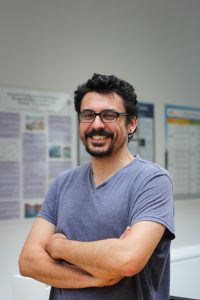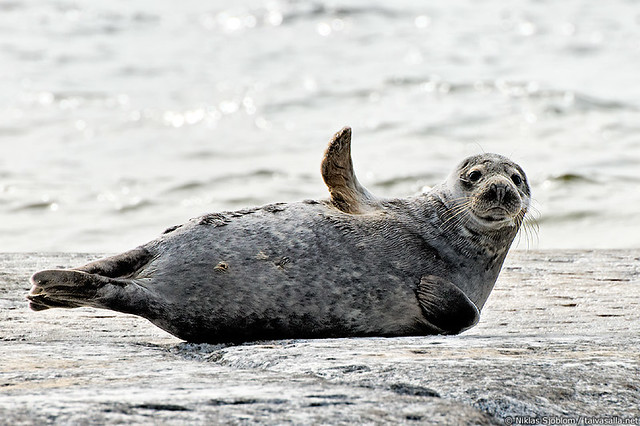With the declining fish population, many commercial fisheries and artisanal fishers are worried. They see the recovering seal population as competitors for the dwindling fish stocks and this economic toll has led some fishers to take out their anger and frustration for on the seals, which truthfully is wrong! Researchers are working hard to scientifically prove that seals are not responsible for the decline in fish biomass in the Baltic Sea but rather the anthropogenic and environmental factors that are prevalent in the region.

“Freshly Caught Cod Fish” by Emad Basiri at Granville Island Vancouver BC, 2019

Dr. David Costalago by Emad Basiri at the Aquatic Ecosystems Research Laboratory, 2019
Dr. David Costalago, a postdoctoral fellow from University of British Columbia’s Institute for the Oceans and Fisheries is helping shed some light on this controversial topic. Research done by Dr. Costalago and his team has helped to serve as a guide for a more comprehensive approach to management and conservation of seals. His research concludes that the recovering seal population is not to blame for the plummeting number of fish, instead, environmental changes, and overfishing cause more significant decreases in the fish population.
Source: SCIE 300 SO Project 213-6 Song “Kiss from a Rose” by Seal
By modelling future environmental scenarios, the researchers investigated how grey seal predation affected the fish stocks in the Baltic Sea. The data modeling software, Ecosim with Ecopath, allowed researchers to study and model the feeding interactions between different marine mammals from 1974 – 2012. In addition, the models allowed the researchers to look into the consumption rates of fish by grey seals and compare that to the amount of fish caught by Baltic fishermen.
Source: SCIE 300 SO Project 213-6 Song “Kiss from a Rose” by Seal
Dr. Costalago’s research brings awareness to the seal population in the Baltic Sea, but further research is needed to accurately determine the economic impact the seals are having in the Baltic. For instance, more data over a longer time period needs to be collected, especially along coastal regions because it’s where most Artisanal fishers are.
“I know for a fact that some of the fishers are struggling nowadays and I know that seals might be playing a role in their struggles so that needs to be addressed,” said Dr. Costalgo. After talking to a local BC fisherman, he mentioned that the damages the seals would cause would lead to several hours of untangling lines and additional money spent to replace damaged equipment.

“Grey seal on Märket” by Niklas Sjöblom is licensed under CC BY-SA 2.0
“We know that the seal population are not affecting the fish biomass but the economic problems that some fishers have to face also need to be addressed by the government” – Dr. David Costalago
Dr. Costalago’s study is helping other ecologists and government officials to find ways to manage the seals and fix their own relationships with the fishermen with regards to fishing policy. This has brought attention to the unjust treatment of seals and the significant impact that the environment and fisheries have on the fish biomass.
By Group 213-6: Emad Basiri, Tenanye Haglund, Katherine Lam, Arrthy Thayaparan
